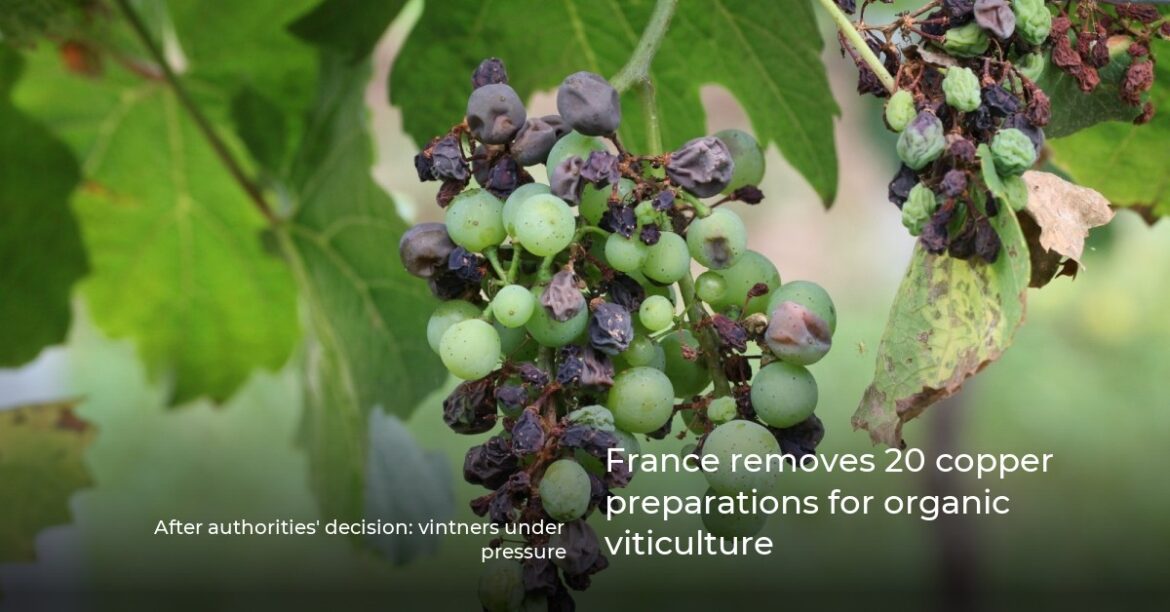The French authority for food safety, environmental and occupational health (Anses) has not renewed the approval for 20 copper-containing fungicides. This poses a significant problem for organic vintners in combating downy mildew.
The ban affects all powder preparations as well as well-known products like Kocide 2000 or Kocide Flow. Only two products – Champ Flo Ampli and Héliocuivre – remain permitted, but under much stricter conditions. This is reported by the French wine magazine Vitisphere. Anses justifies its surprising decision according to the report with a potential health risk for vintners: “The available data do not allow for the exclusion of a risk of harmful effects for users.” Furthermore, the justification states that manufacturers have only provided insufficient data on user safety: “It is the responsibility of the distributor to demonstrate the absence of an unacceptable risk when using the product.”
In the future, a maximum amount of four kilograms of copper per hectare per year will apply for the application of the products. Additionally, Anses mandates a minimum interval of seven days between treatments, distance regulations to residential buildings and bodies of water, as well as a ban on application during the flowering period.
Reactions from the wine industry are critical, especially since Anses has revoked the approval for the cheapest copper preparations starting in 2026. In recent years, many vintners have returned to powders for cost reasons. Nicolas Constant, organic consultant at the research institute IFV, expressed surprise at the decision: “Restrictions on application have so far been justified with environmental aspects. Now Anses is putting the risk for users in the foreground.”
Georg Forster, chairman of the German organic association Ecovin, sharply criticizes the decision: “I cannot understand the justification that the products are not safe for users. We have been working for years to reduce copper levels in the vineyard and also to have potassium phosphonate approved as an alternative.” However, Forster does not expect consequences for German vintners due to the ban: “I do not assume that a ban on copper preparations will follow in Germany.”
In contrast, French organic vintners fear far-reaching consequences. “Copper is indispensable in organic farming. These restrictions will have serious consequences,” warned François Garcia from the agricultural chamber of Hérault in the south of the country. According to the industry association SudVinBio, many businesses could be forced to revert to conventional practices.
According to data from the Itab Institute (Institut technique de l’agriculture et de l’alimentation biologiques), the average amount of copper in organic viticulture in France was 3.72 kg/ha in 2024. However, in some regions, the value is significantly higher: Organic businesses in the Nouvelle-Aquitaine region used an average of 4.8 kg/ha, in Champagne: 4.55 kg/ha, and in Burgundy 4.3 kg/ha.
For the 2026 vintage, vintners still have 17 copper products available under current conditions, according to IFV. However, their approval is also expiring – and would need to be renewed by Anses. If the authority applies the same standards for re-approval, experts believe these products may also disappear.
(ru)
More on the topic
EU Body: Potassium Phosphonate Not Suitable for Organic Viticulture
Despite Organic Viticulture: Rare Bird Species Threatened by Food Shortage


Dining and Cooking